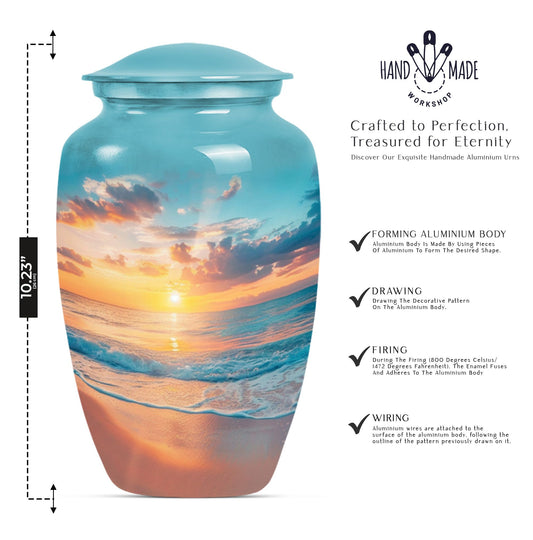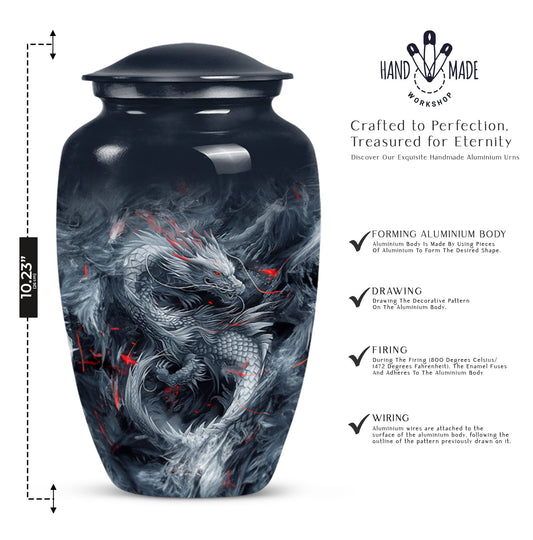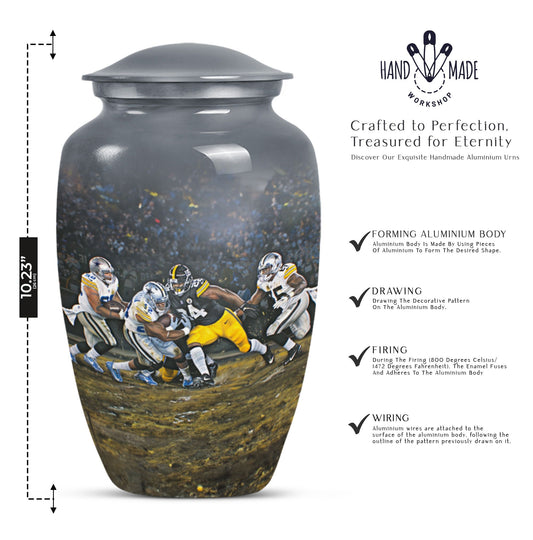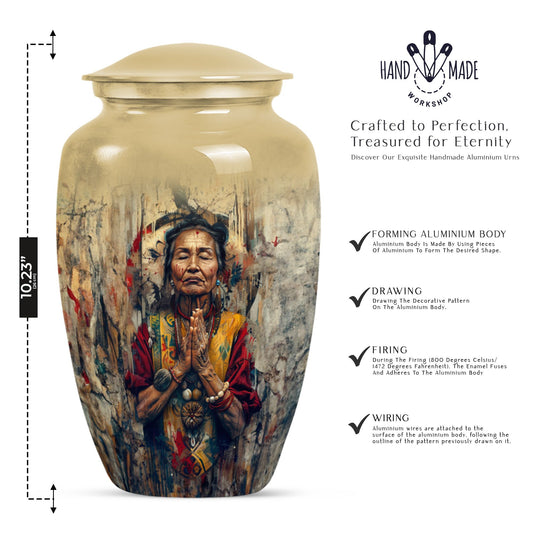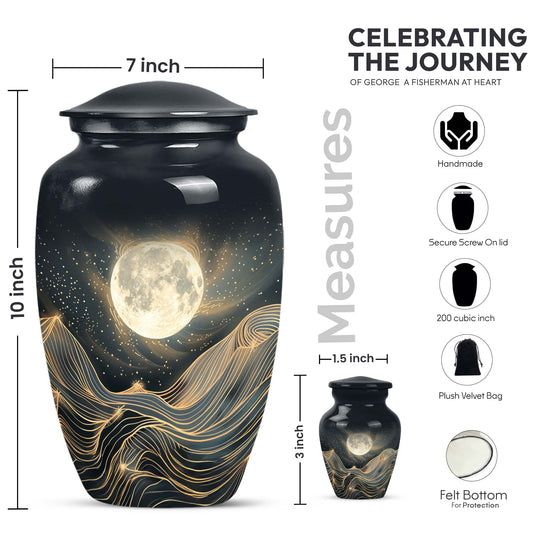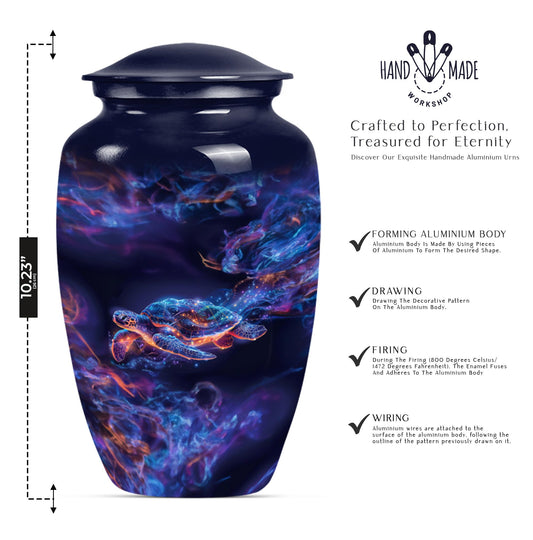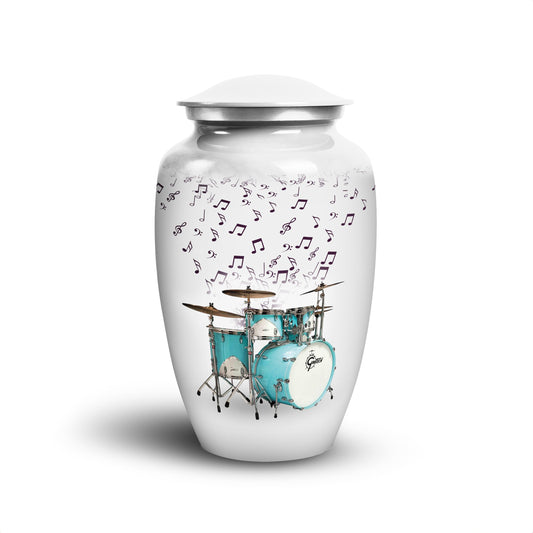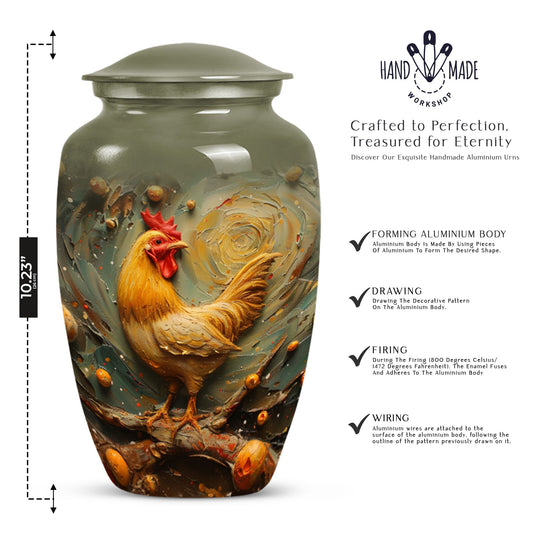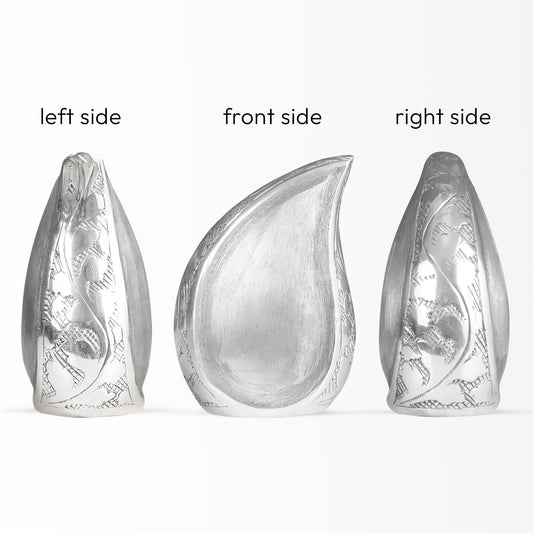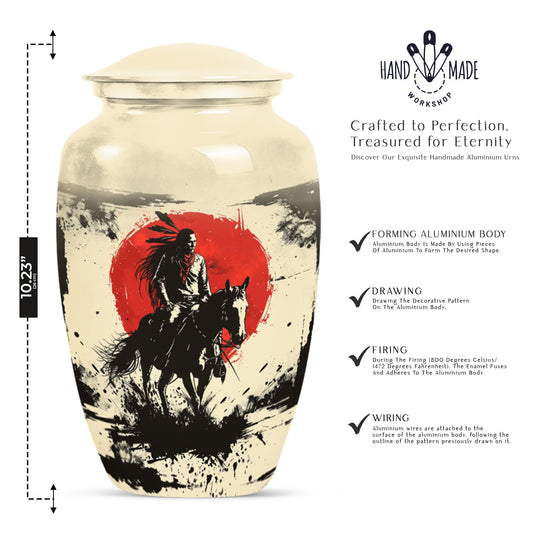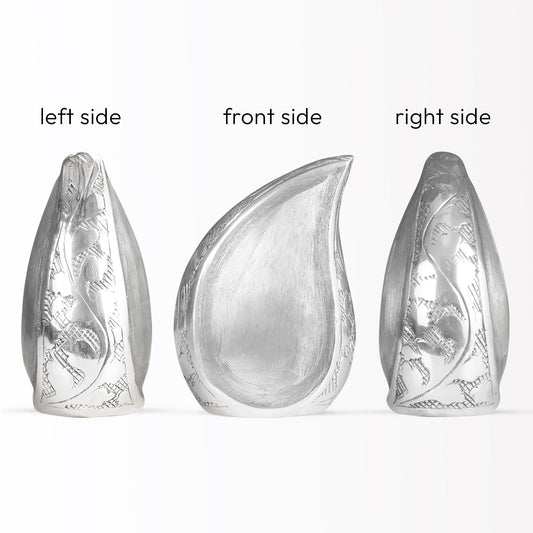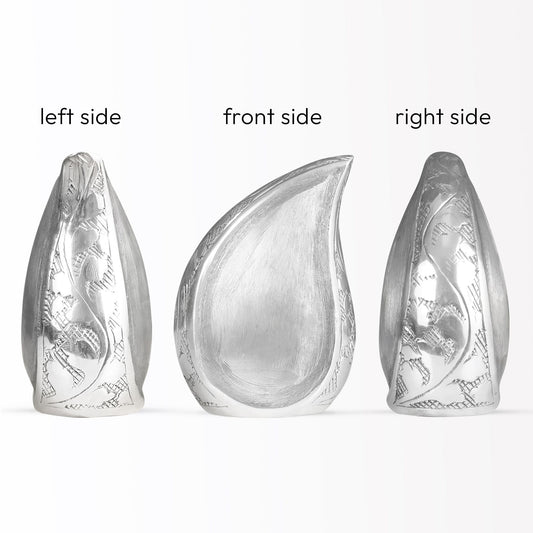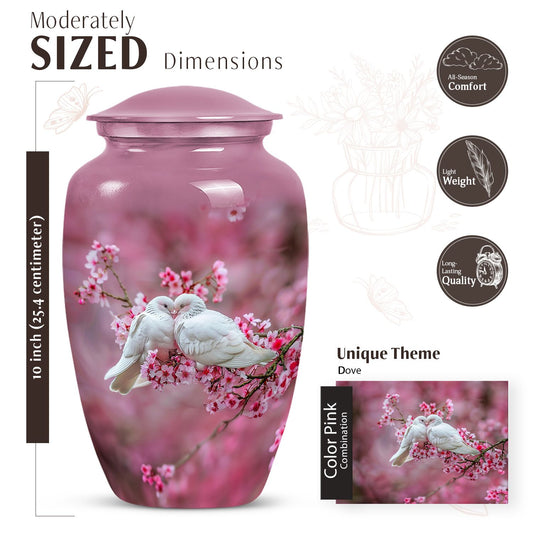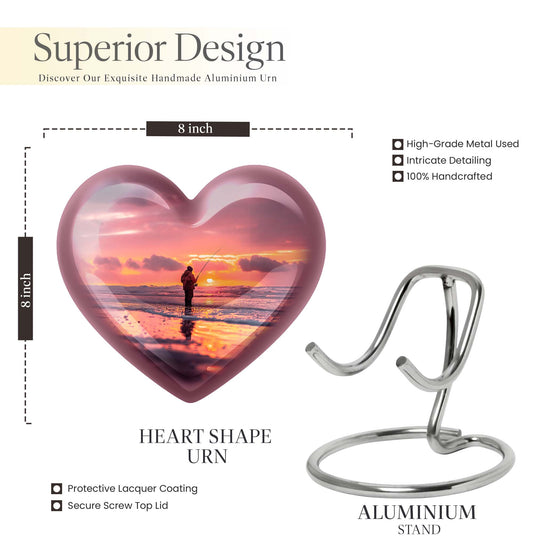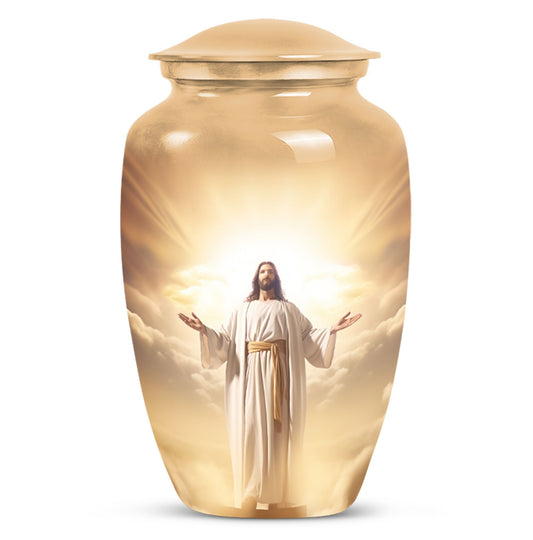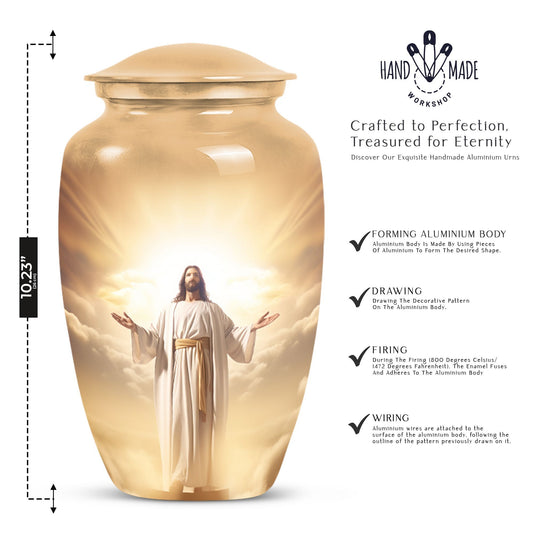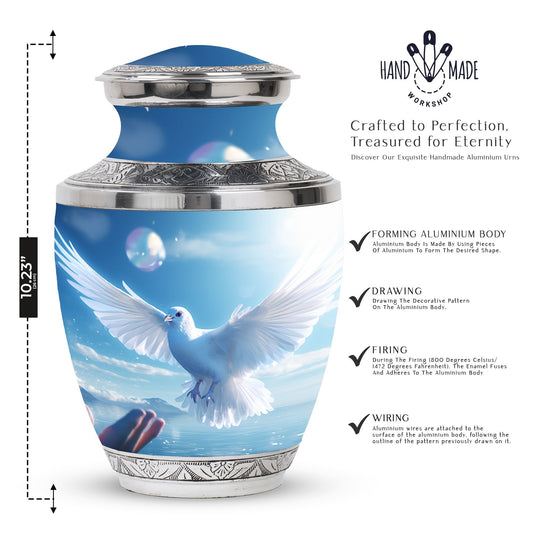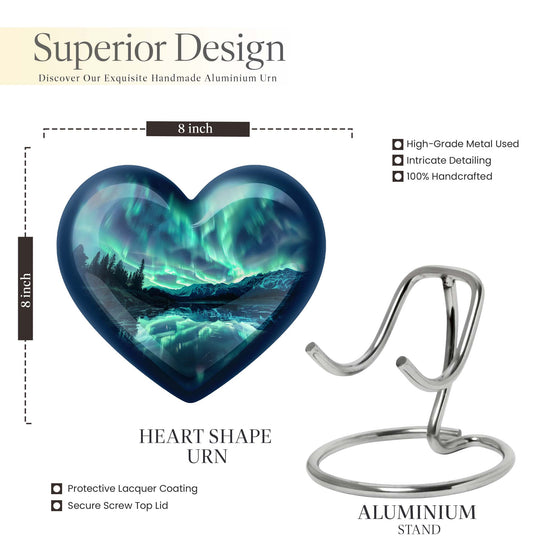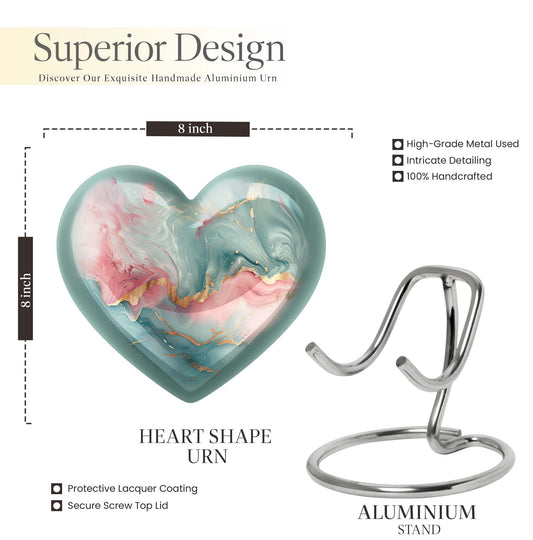Popular Urns
Is Cremation A Sin: Explained in Contemporary Christian Perspectives

Is Cremation A Sin?
Cremation, as an alternative to traditional burial, has sparked a significant debate within the Christian community. Whether cremation constitutes a sin reflects deep theological and doctrinal considerations that are evolving with interpretations of scripture and tradition. This debate requires insight into historical attitudes, scriptural interpretations, and contemporary Christian standpoints.
Historical Attitudes Towards Cremation
Cremation has traditionally been viewed with suspicion by most Christian denominations. To many of the early Church Fathers and medieval theologians, burial-just like the resurrection of the body-was a core teaching in Christian eschatology. The tradition of burying the dead primarily has its roots in the belief that, as Christ rose from the grave, there will be a physical raising of the bodies of the faithful. This method of dealing with the dead was accordingly considered more respectful and biblically grounded.

Many such Protestant reformers during the Reformation retained this position, finding cremation incompatible with the teaching of Christianity concerning resurrection and integrity of the body. Often, it was associated with pagan rites, or interpreted as a denunciation of the hope which Christianity had to offer in bodily resurrection.
Scriptural Interpretations-The Bible does not have explicit teachings regarding the necessity of burial or the prohibition against cremation. Articles like 1 Corinthians 15:42-44, in which the resurrection of the body is dealt with, are quoted as support for the argument in favor of burial, indicating the transformation of the body and not its preservation. On the other hand, there is no prohibition against cremation explicitly condemned in the Bible.

The practices of the Old Testament, particularly those of the Israelites, largely involved burial, as demonstrated by the burials of the patriarchs Abraham and Jacob. Although burials were conducted, there were a number of aspects of cremation to be found within the Bible itself-for instance, the burning of the remains of Achan (Joshua 7:25) and the body of King Saul. Neither of these examples was presented in any sort of normative or prescriptive light, showing the practice neither universally condemned or condoned.
Contemporary Christian Perspectives
Over the last few decades, most Christian denominations have revised their positions on cremation in concert with broader cultural and theological shifts.
1. Roman CatholicismHistorically, the Roman Catholic Church was opposed to cremation because of its ties to pagan practices and the belief in bodily resurrection. The Second Vatican Council between 1962 and 1965 saw a shift in that stance. In 1963, the Vatican lifted the ban on cremation, provided the act did not reflect a denial of the Christian doctrine.

Today, the Church acknowledges cremation, although it still prefers burial and emphasizes the requirement for the ashes to be accorded dignity-more so when laid to rest in a consecrated venue such as a cemetery.
2. Protestant DenominationsMany Protestant denominations have become very permissive towards cremation. For example, the Anglican Communion allows cremation. For example, The Book of Common Prayer makes provisions for both burial and cremation services. All Evangelical and most Baptist churches also allow cremation.
Most of these religious bodies do not bind their constitutions with rites pertaining to body disposal methods but rather base their focus on theological principles of resurrection and life after death.
3. Orthodox ChristianityTrue to its doctrine on the resurrection of the body and the sacredness of the human form, the Eastern Orthodox Church still retains a strong preference for burial.

In fact, without an overt condemnation of cremation, it would look more fitting and respectful that burial be accorded the deceased within the framework of the doctrine of the last things from the Orthodox tradition.
What can be the practical point of view to this debate?
For the modern church, the question of cremation or burial is more often determined by personal, practical and ethical reasons than by strictly theological considerations. Factors such as ecological impact, financial burden, and personal taste have been cited as key in that decision.

The tendency or problem of whether cremation is a sin within the Christian world is tricky and further multi-dimensional. Through theological beliefs regarding resurrection and bodily integrity, most Christian denominations have favored burial for quite a long period of time. Changing modern times have, however, seen many denominations acknowledging cremation as a valid alternative and respectful approach in the handling of the dead.
Ultimately, whether cremation is a sin may come down to individual interpretation of scriptures and understanding the link between cremation and the catholic doctrines, denominational teachings, or personal conviction. As the Christian world continues to wrestle with these issues, the emphasis has increasingly turned to how such end-of-life practices are carried out in a way that respects both the dignity of the deceased and theological principles of faith.
ALSO READ:
Phrases To Engrave on Cremation Urns




